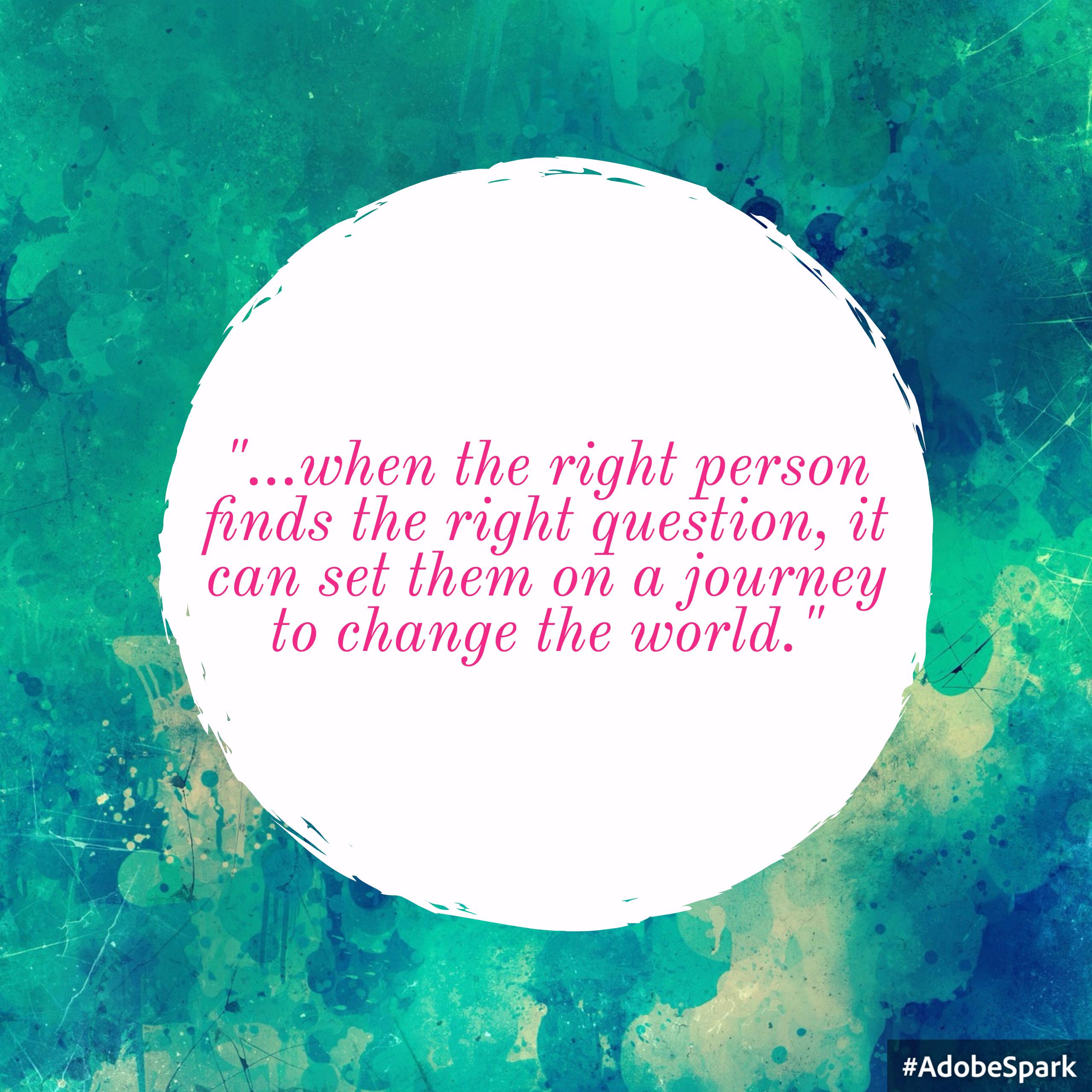If you haven’t seen Google’s video, Rubik’s Cube: A question, waiting to be answered, take a minute and watch it.
One of my favorite lines, “…when the right person finds the right question, it can set them on a journey to change the world.” Yet, typically in schools, most of the questions that are asked have an answer, a right answer, and kids are used to this. How often are we asking questions and providing the time to ponder and problem solve?
I was at a school recently and we were planning an event for students and after much adult input we finally brought in some students to get their perspectives. The students filed in, grabbed a seat and timidly sat there as we, the adults, sought their input. Shortly after they walked in, we all excitedly fired questions: What do you want to learn? If you could choose anything to study in school what would it be. What do you want to be when you grow up? What do you do at home online? We really wanted to know the answers and understand their interests but instead these 8-12 year olds responded that they like to play math games at home and search answers to their homework. They wanted to learn more about “science” and were going to be doctors. At first I was shocked by their responses. I wondered if these students were really that different from their peers who, according to media and pop culture, are so connected? Although I think that there was truth in their responses, I couldn’t help but feel that there was more to their online habits and interests that they were choosing not to share and I really couldn’t blame them.
As I noticed this, I stepped back from the conversation and just listened for a minute. The line of questioning, although well intentioned, had not really indicated that we wanted to know what they really thought. The rapid fire questions left students with no time to process when questions came at them one after another. When there was a moment of silence, instead of waiting for students to think and give a thoughtful response, the adults filled the void with more probing questions. In turn, the students responded with the programmed response that they assumed we wanted to hear, if they even responded at all.
As I sat there and listened to the questions and rote responses, it got me thinking about how typical this same method of questioning is in many classrooms. I know that there is a lot to fit into the school day but I have to wonder what we risk losing if we don’t create the space for students to “find the right questions ” as the Rubik’s Cube video highlights. I wonder what if we really examined how we questioned learners and empowered them to solve problems not just answer questions.
- What if our questions inspired curiosity to solve the challenges that exist in their world now and in their future?
- What is we slow down and give learners a chance to really find and share their thoughts around deeper, open ended questions?
- What if we focused “lesson planning” on deliberately crafting questions rather than planning how to transfer information?
- What if we invested more time asking thoughtful questions to spark more conversation and develop even more questions?
With so much information at our fingertips, we have now have the opportunity to create the conditions that empower learners to grapple with better questions, rather than simply providing the answers.



0 Comments
Trackbacks/Pingbacks